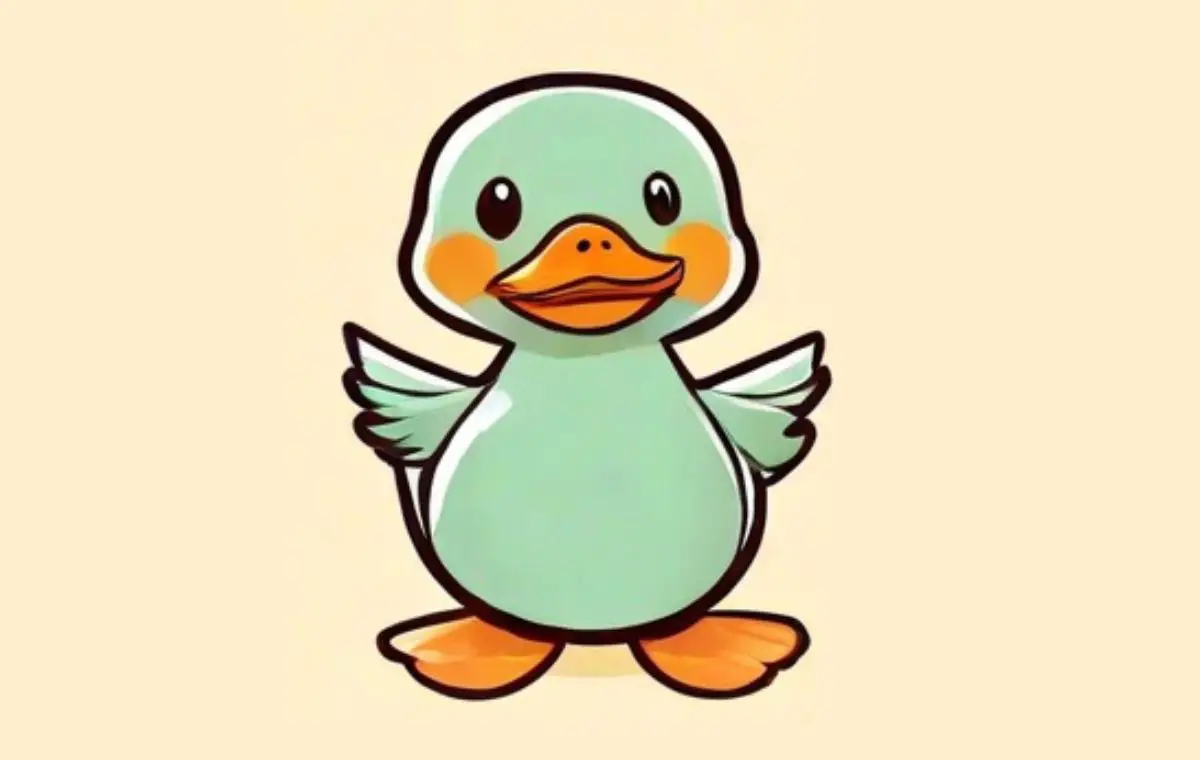Duck Predators: 11 Answers You Should Know (+Helpful Tips)

When given a chance, certain species of wild animals will eat ducks and are considered very dangerous. You must know the species that are likely to prey on ducks and protect yourself adequately against these animals. Following is a review of various wild animals and their likelihood to eat ducks.
Do Raccoons eat Ducks?
Your ducks are not safe from the raccoon, and these predators will even eat the duck right through the chain link. They are known to work in groups and try to scare the ducks to one side of the pen, where others pull their heads through the chain link.
A raccoon that is hungry enough will attack and kill a mature duck. Even the animals that survive an attack from a raccoon are usually left traumatized after the event.
Do Hawks eat Ducks?
A mature hawk can lift about 5-8 pounds and carry up to two-thirds of its body weight. Ducklings and young ducks are highly vulnerable to the deadly attacks of the hawks, and they can be easily spotted from a far away before the predator swoops in for the final kill.
Hawks can eat ducks, and the fact that they can lift huge weights means that even mature ducks are vulnerable to these attacks. Hawks prey on ducks that are not well protected as these can be easily lifted off the ground.
Do River Otters eat Ducks?
River otters usually have diets that are made up of frogs, small birds, and fish. However, they are also known to eat ducks and will resort to eating them when they run out of other foods to prey on.
Being predatory animals, the otters will tend to take anything that they can find, such as fish, and when the population of fish can no longer sustain them, they will resort to ducks and other animals. Anytime a river otter gets an opportunity to kill and eat a duck, they will not hesitate.
Do Possums eat Ducks?
Possums might have a scary appearance, but typically, they are not duck predators. However, they are known to eat duck eggs, and when they get the opportunity, they will eat ducks. Whenever a Possum gets into a coop, they tend to eat the eggs and the young chicks.
This means that your ducklings are potential prey for these animals, and they will kill them by biting their necks. They eat their prey partially, such as the crop and the chest.
Do Foxes eat Ducks?
Foxes are primary duck predators and have been known to limit duck production in many places. They do not wait for an opportunity like the other prey we have described above. Instead, they seek out the duck nests and kill them where they stay.
The fox attacks a bird at the throat and carries them to their den, where they consume them. The foxes depend on the ducks for their protein and never let an opportunity to kill the ducks slip by.
Do Snakes eat Ducks?
Giant snakes like pythons have been reported to have killed and eaten ducks together with their eggs. Other snakes have also been known to eat eggs and chicks and are lured into the duck’s pen by the opportunity of an easy meal.
Even non-venomous snakes can pose a real threat to your ducks, and you should ensure that you have proofed your pen against snakes. Snakes will kill and eat your ducks along with the eggs whenever they stray into the pen.
Do Snapping Turtles eat Ducks?
Snapping turtles are dangerous to ducks and other kinds of waterfowl. They have been known to reduce the population of a pond in a short time. The reason they are considered to be very dangerous predators is that they are not only strong but also quick and very aggressive.
They will easily attack and eat the ducks, which makes them dangerous to your ducklings. The snapping turtles will also eat larger ducks without any hesitation. Even without the teeth, these turtles are still very harmful to your ducks.
Do Alligators eat Ducks?
Alligators have been known to eat different species of birds and even ducks. These animals are not very picky when eating and will consume fish and other small animals regularly. They are dangerous animals and will quickly eat ducks as they eat fish.
Ducks are usually very scared of the alligators and will always try to stay very far away from them. They can easily recognize the alligator’s head in the water and instantly notice the danger.
Do Eagles eat Ducks?
Eagles usually prefer fish, but when they get an opportunity to kill and eat a duck, they will gladly do so. They do not usually go after ducks on the water or in full flight but will easily make a try on a duck attempting to take off from land or the water.
At the point of take-off, the eagle will try to catch the duck and make a meal of it. Eagles will eat ducks when they get a chance to catch them, but they do not actively go for the inert ducks.
Do Muskrats eat Ducks?
Muskrats are primarily herbivores and rely on plants such as duck potato, water lily, willows, and sedge. These plants grow in the water and are a source of food for the animals. The Muskrats also feed on mussels, frogs, fish, crayfish, and turtles whenever they run out of vegetation.
A muskrat may eat a duck, but it is also improbable and rarely happens. The muskrats will not harm the ducks but can change the habitat of the ducks when they dig holes.
Do Owls eat Ducks?
Owls are predators that are more active during the night. When they take birds, they are known to eat many kinds of animals such as ducks, chickens, and other poultry. You can easily prepare your ducks for the owls by placing plastic owls as decoys near their habitat. Night lights have also been another effective means of preventing the owls from eating your ducks.
How to Protect Ducks from Predators
Healthy ducks can only produce healthy eggs, and the healthiest ducks are the safe ones. Keeping your ducks safe from predators is very important for developing well into their teens and giving you the best eggs.
Even when you have a swarm of predators all around your property, you can still manage to keep your ducks safe and healthy at all times. Here are a few measures that you can take to keep your ducks protected from predators.
1. Install a 6′ tall perimeter fence
In the space where your ducks spend their day, you should have a tall fence keeping them protected from all kinds of predators. Predators can quickly jump over a short fence and eat your ducks, but a taller fence deters them from attempting to get into the yard. Daytime predators are deterred by the tall fence and will not be able to get to the ducks.
2. Bury Hardware Cloth on the Outside of the Fence
Canines can also attempt to dig under your fence to get to the ducks. When the predator cannot jump over the fence, they will start digging directly next to it. The bottom of your fence should be secured to the ground, and you should also bury hardware cloth beneath the fence.
Check out this affordable hardware cloth on Amazon that you can use:
The animals will not be able to dig any further than the cloth, and you can also hide the cloth by growing some grass at the top.
3. Block Holes in your Fence
Any gaps and holes in your fence can be potential ways for the predators to squeeze their way in. Blocking them is one of the ways to keep your ducks safe from predators.
4. Build a Strong Pen
Invest into building a strong pen for your ducks. Ensure that it is impenetrable to predators from all sides and heavy enough not to be tipped over. A small wire mesh is also recommended for the pen’s exterior to keep out predators such as raccoons. The raccoons might try reaching in and grabbing your ducks if you have a large size of the mesh. Additionally, the mesh will prevent snakes from crawling in, which will ensure that your ducks are kept safe and secure at all times.
Underneath the pen, you should bury wire mesh so that there is nothing that can burrow under the pen and get inside. The wire mesh can also be made to stick out on all sides to prevent larger predators from attempting to dig under the duck pen.
5. Use Safety Latch Eye and Hook Locks on your doors and windows
Raccoons can open the doors and windows of your duck pen. With a simple latch, it will be pulled open, leaving your ducks unprotected from the predator. With a good lock in place, predators will not be able to open the doors and windows on your duck pen. With a spring-lock feature, only humans will be able to open the lock.
You can get this cheap and strong hook lock on Amazon to use on your duck coop doors:
6. Remove Eggs in the Morning and Keep the Pen Closed in the Day
Establish a routine of constantly removing eggs from the duck pen in the morning. Leaving any eggs behind will attract snakes and other predators. Also, remember to close the pen after taking the eggs to discourage predators from getting in. After the day, ensure that your flock gets back in at least 30 minutes before dusk.
7. Keep a Larger Flock
A larger flock is usually a good way of deterring the hawks and other predators from attacking. They will not be able to single one duck and will be less likely to attack.
8. Guard cats and dogs
You can train dogs and cats as guards for your ducks. With a bit of training, they will keep the other predators away from the ducks. At the same time, they will not be able to harm your ducks thanks to the training you have given them.
Final Thoughts
Ducks are valuable poultry that is known to produce good eggs and are also a joy to keep. Whenever you have issues with predators, you must institute proper security measures before your flock is depleted.
Many different wild animals can prey on your ducks, and knowing the likely predators is essential. You should also be able to keep the animals away from your ducks by ensuring that your pen has been fenced and reinforced at the bottom to prevent predators from digging underneath.
